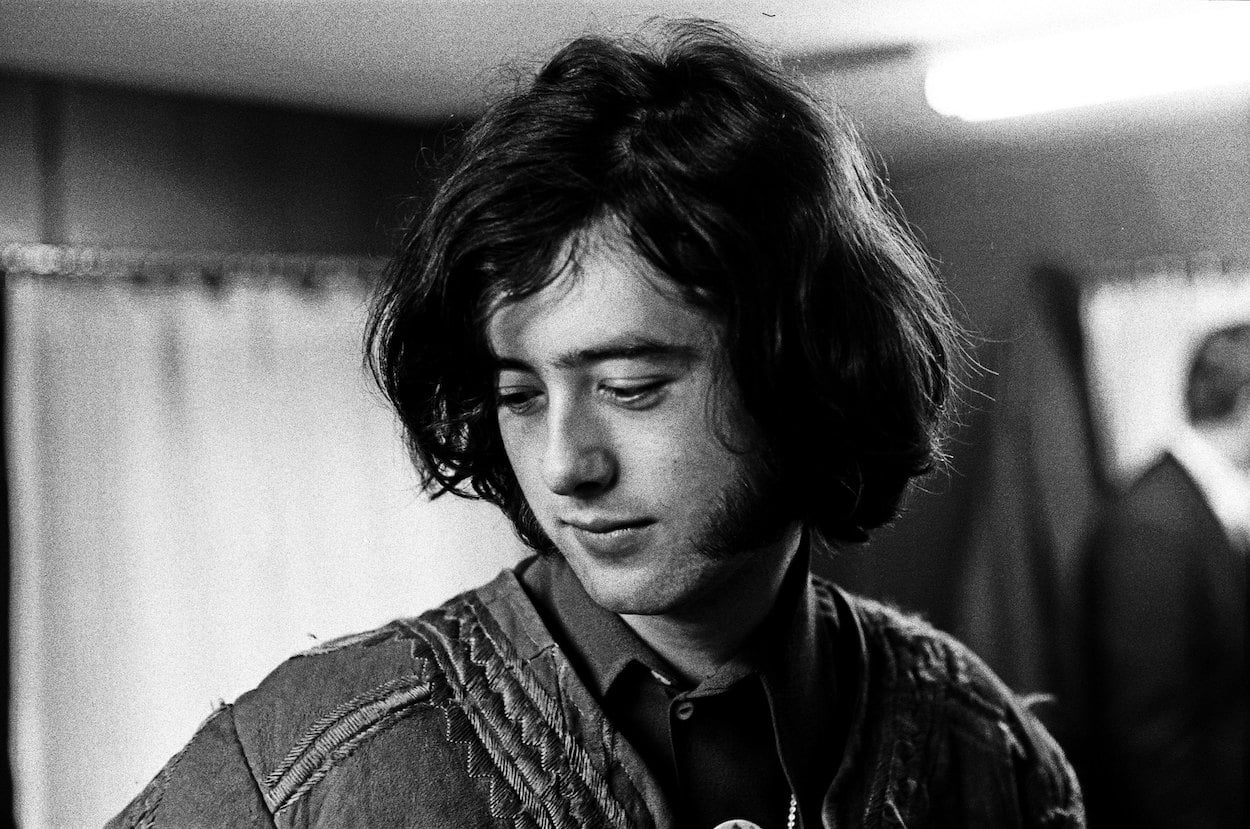
The Moment Jimmy Page Realized He Had to Quit Being a Session Guitarist and Form a Band
Jimmy Page remains one of the most celebrated guitar players ever. He avoided disaster by shunning two terrible names as he formed Led Zeppelin, and he then guided the band to incredible heights in the late 1960s and throughout the 1970s. Yet there’s a chance we wouldn’t have heard of Page if he hadn’t quit being a session musician after learning how to read music.
Music fans can rejoice knowing he walked out that studio door and eventually formed Led Zeppelin.

Jimmy Page was a session guitarist before he formed Led Zeppelin
Page regretted one aspect of “Tangerine,” a Led Zeppelin III song he resurrected from his Yardbirds days. Long before he starred in Zeppelin or latched on with the Yardbirds, Page made good money as a session musician.
The guitarist played on several 1960s hits, including songs by The Kinks and The Who. He first bowed his guitar on an album on a movie soundtrack composed by The Rolling Stones’ Brian Jones.
Page turned down two invitations to join the Yardbirds in the 1960s. He preferred to learn more about recording techniques by remaining a session player. At some point, though, Page realized he had to quit as a session guitarist and form his own band. It happened around the time he learned to read music.
Page learned to read music and soon realized he had to quit as a session guitarist
Page experimented with unique musical sounds in the early 1960s, but he had to do as he was told as a session guitarist. He made a good living playing on other people’s songs, and he learned a lot about the music industry. That included learning about recording techniques as well as reading music, which Page didn’t know how to do when he started as a session player.
“When I went into the studio world, I could read chord charts, but I couldn’t read the sort of dots and musical notation for real. But as time went on, I could,” Page said during a recorded interview with The Guardian (via YouTube).
Page realized he had to quit as a studio player and form his own band after one particularly brutal session, as he told The Guardian:
“I was doing all these various sessions — from TV jingles to film music to this to that to blues to folk — on and on and on. [I] had quite a lot of music in front of me, and I had to start reading it. I just kept turning the pages, and it didn’t stop. It just kept going on, and it was getting really tricky. It didn’t take long to realize it was a muzak session, and I thought, ‘What am I doing here? This is just really not what I’m cut out for.’
“Especially as I’d sort of introduced the overdrive pedal, the fuzzbox, into the whole recording scene and people were using them on stage. I was sort of quite keen on some experimental things like the bow with the guitar, and I thought, ‘It’s time to get out.'”
The moment Jimmy Page realized he had to quit as a session guitarist
Once Page realized he had to quit as a session guitarist so he didn’t end up playing muzak for the rest of his life, he found his way into the Yardbirds. He joined the band as a bassist but switched to guitar after an atrocious gig playing bass.
The guitarist wrote some of the most memorable riffs ever with Led Zeppelin
Page quit as a session musician in part so he could play rock ‘n’ roll instead of muzak. It was the right call to make. Page scratched his creative itch while music fans got to hear some of the best guitar riffing of all time.
Led Zeppelin I and II melded blues-based riffing with Page’s seminal solos. The albums announced Zep’s presence with authority. The band gave the world “Stairway to Heaven” on Led Zeppelin IV. Page said the song has a powerful, everlasting quality. That’s why it remains a classic more than 50 years later.
Page’s “Dancing Days” riff took fans out of their comfort zone. The guitarist described his “No Quarter” guitar as the sound of water nymphs.
Led Zeppelin albums were filled with great riffs, but Jimmy Page had to quit as a session player before he could deliver those classic tunes to music fans.
For more on the entertainment world and exclusive interviews, subscribe to Showbiz Cheat Sheet’s YouTube channel.


